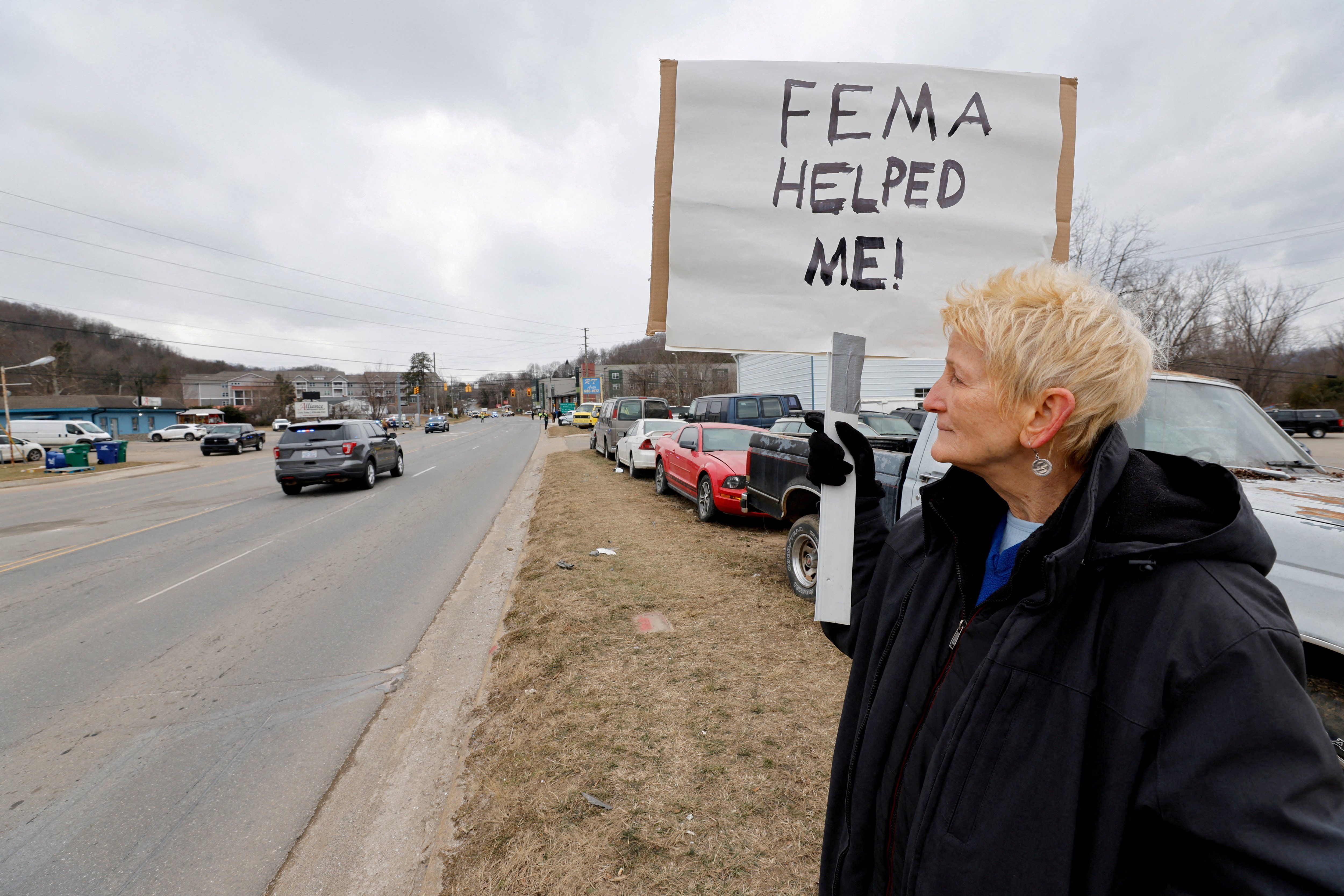Many Republicans in Congress are uncomfortable with the Trump administration’s proposed overhaul of the Federal Emergency Management Agency, and some of them are going public with their concerns.
“FEMA needs to be reformed, but it’s an important instrument in recovery in every disaster I’ve ever seen,” Rep. Tom Cole, chairman of the House Committee on Appropriations, said. “We need to be careful about not throwing the baby out with the bathwater.”
President Donald Trump’s fiscal 2026 skinny budget proposes cutting $646 million from FEMA’s spending, while providing little detail about what efforts the cuts would affect. It comes as the administration imposes broader changes toward the president’s goal of scaling FEMA down, including cutting employees, removing funding allocations and ending its major grant programs.
In Congressional appropriations hearings for the Department of Homeland Security, lawmakers pressed Secretary Kristi Noem for details about the big FEMA cuts. In those remarks and in following interviews, some Republicans signaled caution on the slash-and-burn of the federal government’s emergency response to disasters.
One major grant in particular, the Building Resilient Infrastructure and Communities program, which funds local projects to reduce risk to life and property in the event of natural disasters, continues to be a sticking point. Trump signed the program into law in 2018 with bipartisan support. A FEMA spokesperson called BRIC “wasteful and ineffective” when the agency ended the program in April.
During one hearing, Cole told Noem the Appropriations Committee was looking forward to receiving a plan from the administration about how the grants will be reformed and reinstated.
BRIC grants “have been extremely valuable,” Cole told Noem. “I don’t have any problem with evaluating things... but please know that there’s strong bipartisan support for that program.”
Sen. Lisa Murkowski said potentially life-saving efforts in Alaska have been frozen due to the elimination of BRIC grants. In southeast Alaska, Murkowski said, a large boulder sits on top of a very steep mountain in Skagway, which has seen rockslides fall on top of the cruise ship dock it hovers above.
“The community worked hard and was successful with their BRIC grant, and now that has been frozen or paused or eliminated,” Murkowski said. “We’re not sure which, but the threat is still sitting up there, and the cruise ships are starting to come.”
NOTUS reported in April that Rep. Chuck Edwards — who Trump appointed to a North Carolina-focused task force on reforming FEMA following Hurricane Helene — recommended that the White House reform the BRIC program to be fair to all states, but not actually end it.
On Tuesday, a bipartisan, bicameral group of lawmakers — including 16 Republicans — sent Noem a letter calling on DHS to reinstate BRIC.
“BRIC funds are spurring communities across the country to strengthen their resilience to extreme weather, and forgoing these critical investments will only make it harder and more expensive for communities to recover from the next storm,” the letter reads.
In the hearings, Noem repeatedly emphasized the administration’s goal of minimizing the federal government’s role in disaster response by empowering states to take a bigger role, rather than concentrating resources and staff at FEMA headquarters.
“The president has indicated he wants to eliminate FEMA as it exists today, and to have states have more control over their emergency management response,” Noem told lawmakers. “He wants to empower local governments and support them and how they respond to their people.”
But some Republicans say the White House hasn’t provided enough information about how it’ll achieve that goal.
“FEMA needs reform and I understand that, but I don’t know what form that takes in the president’s mind, so I’m concerned,” Sen. Shelley Moore Capito said. “States don’t have enough money or even the know-how to be able to respond well, especially with some of these larger disasters.”
Sen. Thom Tillis said, “People lose me the minute they start talking about how we don’t need FEMA.”
“Storms have this weird way of not honoring state boundaries, so they tend to go all over the place, and every one requires a regional response,” Tillis said. “Are we seriously talking about eliminating a convening authority for a regional response and then mobilizing national resources that we’re going to need anyway?”
Tillis was one of few Republicans who expressed concern over the Trump administration’s decision to fire acting FEMA chief Cameron Hamilton. (Hamilton testified publicly in a hearing the day before being fired that FEMA should not be eliminated.)
“I think it was unfortunate,” Tillis said. “I can’t find anything in the record that he could’ve done besides disagreeing with Secretary Noem on FEMA’s existence. I give him a lot of credit for being honest.”
Sen. Susan Collins said, just after the news of his removal broke, that “the proximity between when he was testifying and the firing raises concerns.”
Oversight of the agency now appears to be heading down a much stricter and Trump-loyal path. FEMA’s new head, David Richardson (a senior official at DHS), reportedly told staff that he’d “run right over” those resisting Trump’s will for the agency.
“I, and I alone in FEMA, speak for FEMA,” Richardson said. “I’m here to carry out the president’s intent for FEMA.”
This story was produced as part of a partnership between Oklahoma Watch and NOTUS, a publication of the Albritton Journalism Institute.
